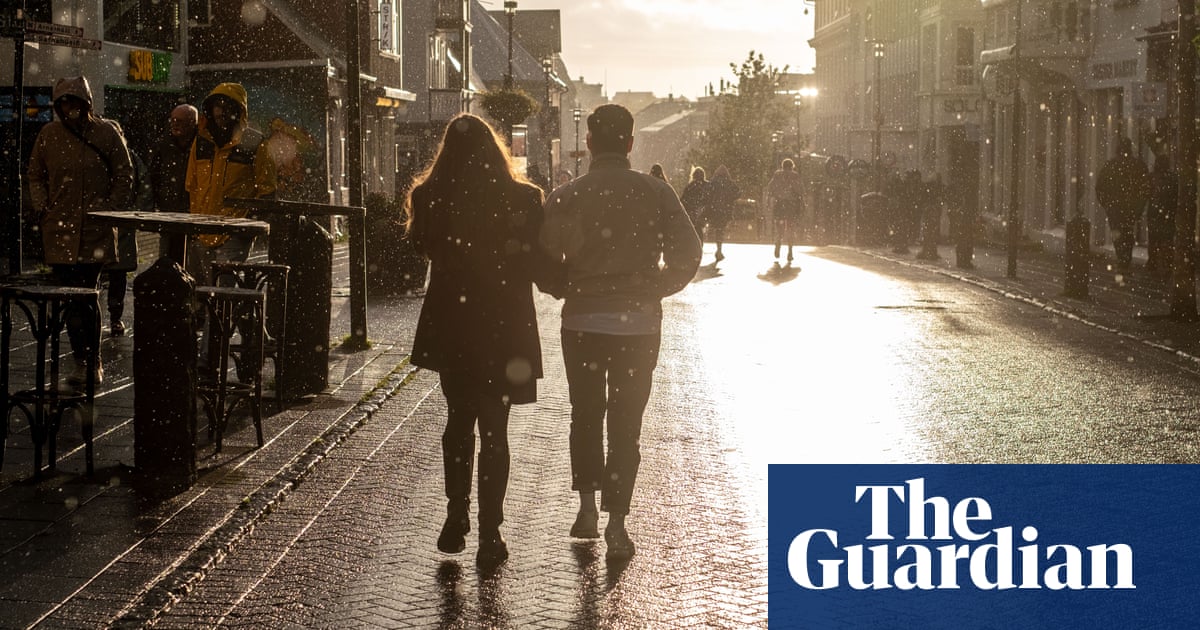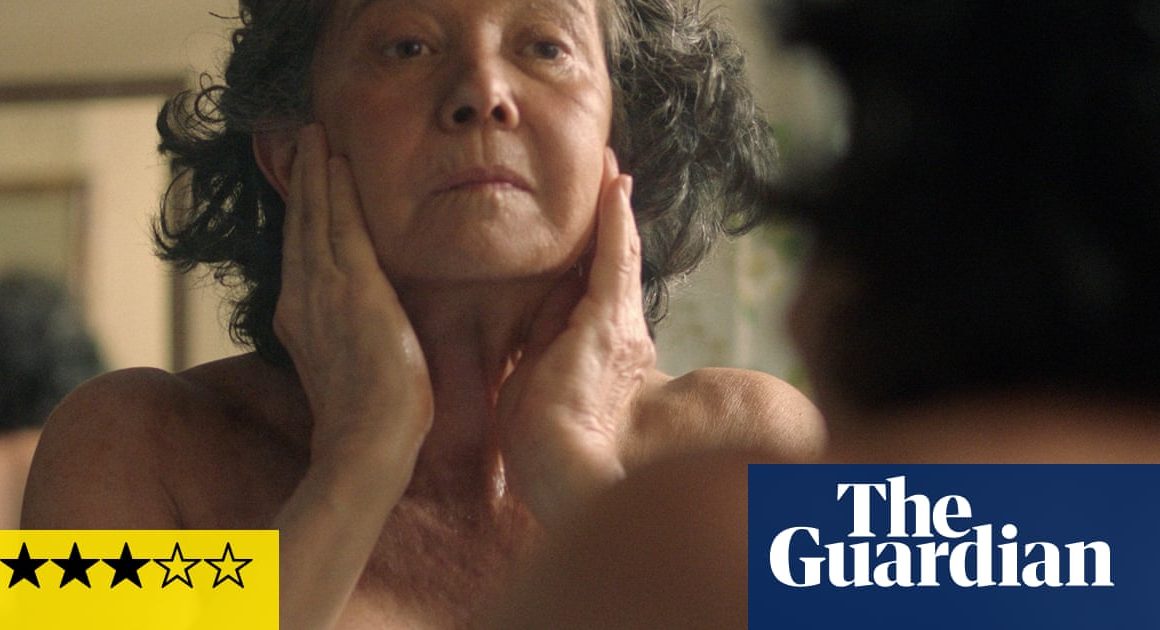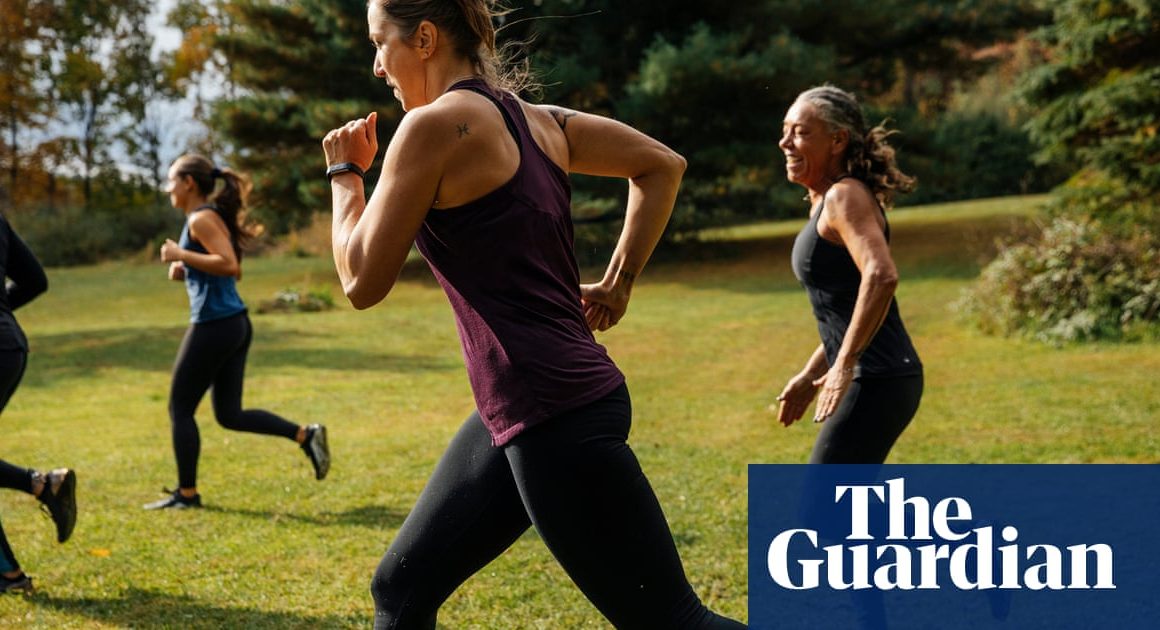‘Sex before coffee” is the go-to cliche of Scandinavian romantic habits, but in each country it means something different. In Sweden, it’s shorthand for quite an upfront, efficient dating style. Only in Iceland is it meant literally: whatever happens – whether you end up having coffee another day, or more sex, or moving in together, or pretending it never happened – any possible romantic permutation will start with sex rather than a date.
If you’re wondering about how that deal gets done with no preamble, remember that Iceland’s population, a little under 400,000, is only a smidge larger than that of one of London’s biggest boroughs. “Something that defines Icelandic dating culture is that you’re not really out looking for someone, because you already know them,” says Völundur, 26, a graphic designer I meet in a burger bar in downtown Reykjavik.
People talk about the “spider web of connectedness” (this is Àstròs, 22, also having a burger), everyone being married to someone’s cousin. This has spawned a side-reputation – the notion that there is an app Icelandic people check to make sure they’re not related before they sleep together. “I’d encourage you to dispel that notion,” says journalist Jóhannes Bjarkason. “It’s basically a myth, that’s just an online genealogy service.”
I meet him in the office of the Reykjavik Grapevine, which is like an Icelandic version of the French Dispatch (the Wes Anderson film about fascinating multinational people running an English-language newspaper, having interesting conversations all day long). Anyway, whichever way you slice it, you’re rarely trying to hook up with a complete stranger.
Second – and this may resonate somewhat with the UK reader – dating isn’t how people get together. Siggi, 31, a carpenter, describes how his first relationship started: “In the classic Icelandic way: we met at a pub, we got very drunk, we made out. That turned into a nice evening. Let’s see if it works out.”
Don’t mistake this for commitment-phobia: it might move a long way, very fast. “In Iceland, they often just move in together,” says Iryna Zubenko, 30, originally from Ukraine. “You wake up in somebody’s bed and just decide to keep living with them.”
Even then, they won’t go out on a date. Siggi is in a relationship so serious with his Polish girlfriend that they’re just about to buy a flat together, and they didn’t step into a restaurant until their first anniversary.
“Remember,” he says, “inviting someone on a date here means you’re going to go bankrupt. So you have to be really sure this is the one.” (Oh my God, Iceland is expensive. I had to buy a swimming costume in a hurry because one of the things Icelanders do instead of dating is go to the pool. Only a charity shop was open and it had one secondhand bikini. Twenty seven quid.)
It’s also normal, Iryna says, “to have a bunch of kids with different partners. And sometimes you’ll hook up, then that’ll happen again, then they’ll ask you out for a drink, then they’ll add you on Instagram, then it’s, like, ‘Oh, you have a one-year-old baby.’”
“Having kids in Iceland,” her colleague Baldur Þórhallsson cuts in, “is always seen as a happy thing. It doesn’t matter if you’re single, or in a relationship; it’s not a career-ending thing or even a career-hampering thing. It’s a happy situation.”
When it comes to sex: “Nobody here thinks of it as this holy thing that you only have with someone you’re going to marry,” says Àstròs. Iceland has always been an outlier, sexually – they start having sex young (15.7 years, against a global average of 17.7), they have more partners (12.4, global average 10.5), more of them (71%) say they’ve had a one-night stand (only in Vietnam is the proportion higher, at 75%). Those figures are all from Durex global surveys of sex in the early 2000s: Iceland was dropped out of the sample in the early 2010s, maybe because they kept winning everything, but the data didn’t stop on rates of chlamydia, affectionately known as the Reykjavik handshake. Numbers are astronomical across Scandinavia, Iceland at the top for most of this century (though since 2018, there have been more cases in Denmark).
The permissive culture around sex is distinctive for its equality – “You don’t really get catcalled in the street, here,” Àstròs says. “We are respected as human beings. We don’t get treated as pieces of meat.” Her friend Jóhanna, 23, puts this partly down to the country’s size, again: “If anyone did that, we’d be saying, ‘I know you. I know your mother.’” When, in 2003, Icelandair tried to market promiscuity directly as a tourist attraction – “Miss Iceland Awaits”, “One night stand in Reykjavik” – the Centre for Gender Equality and the Icelandic Women’s Rights Association sued the airline for violating equal rights law. Sex was a consensual, hearty enterprise between two equals, not a “Get ’em out for the lads” event (the airline defended itself, successfully, on the basis that the ads were aimed at Brits, and we are pigs).
Iceland is one of just two countries – Japan being the other – with a penis museum, which distils a pragmatism about the body (look at this gigantic sperm whale penis, interesting, no?), and the self-awareness of that idiosyncrasy. Un-prurience is their thing. Heiðrún Anna Björnsdóttir, 51, a singer based in London and Reykjavik, tells me: sure, no one dates, but if “you see somebody you like out in a pub or a bar, sometimes people say, ‘the next time, shall we meet in the pool?’ So it’s more relaxed.” In what possible universe would that be relaxing? Gudrun (not her real name), 51, recently divorced, shrugs this question off: “On the two occasions I’ve been to the swimming pool, my approach has been, take it or leave it. If you don’t like what you see, let’s not take it further.”
Heiðrún, by the way, actually was Miss Iceland in the International Tourist awards, 1993. She didn’t tell me that, I looked it up.
I visit Sundhöll baths looking for not-exactly-a-date second dates, and Ásta Sól Kristjánsdóttir, 49, the first person I meet, had exactly that with her current boyfriend. “He’s Czech,” Ásta says, “and he doesn’t like swimming. So he felt uncomfortable with that.” That didn’t deter her? “He should have said. Compared with a lot of people, we are definitely used to our bodies. We shower naked together.”
I am a very modest person, I like to take my bra off through one sleeve and then kind of wriggle into a swimming costume. And then I have to shower naked next to Ásta. I did not think that through. “It’s like breathing, for Icelandic people, going to the pool,” Goser, the 47-year-old attendant, says. Katrín Jakobsdóttir, the last prime minister, used to hold meetings here. “You see old guys looking at young chicks,” Ásta says. “But that’s what we all do. We look, don’t we?”
But there’s more to this than just an absence of shame around the body generating more casual sex, and obviating the need for a dating culture. Jón Trausti Sigurðarson, 42, is the publisher of the Grapevine, and explains: “When it comes to Iceland, there is no history of bourgeois living. Having courtships, going to institutions, restaurants, it’s so recent. There is no dating culture in an agricultural society, and our city culture has just not been around long enough to become dominant. We still do our own plumbing. Dating is kind of like hiring a plumber, you just don’t fucking do it.”
Sigurðarson spent 10 years living in Sweden. “You can’t compare Iceland to a culture of 10 million. Sweden is like a warm-blooded mammal, like a cow, with a bloodstream, and four stomachs. Iceland is more like an insect, where the food and the excrement and the oxygen all use the same hole.” I love this country.
Similarly, the patriarchy never got a chance to bed in. “If you think about a rural society, there were obviously different roles for the sexes, but not necessarily a one-sided power imbalance. Everyone carries what weight they can. There was no Victorian period, there was no stay-at-home-mum ideal à la 50s America.” There was a famous women’s strike in 1975 – known as “the long Friday” because men had to look after their own children, lol – and after that, the idea just took hold. Within five years, they had a female president, the world’s first: Vigdís Finnbogadóttir. In 1983, Iceland’s parliamentary election had all-women shortlists, the feminist party Women’s Alliance won its first seats. In 2000, paid paternity leave arrived, in 2010, a female prime minister, Jóhanna Sigurðardóttir – the world’s first openly gay head of government.
Magnea, 25, manager of the downtown bar 22, and Kiki, the gay bar above it, says: “We’re more equal between the sexes, we’re more forward thinking on LGBTQ issues,” then asks me to wait while she Googles Iceland repealing the law against same-sex relationships; she thinks it has a funny date. Ah yes. 1940. “When the rest of the world was busy having a war.”
I’m afraid there is a but, though. It’s better to be young, in a country where everyone knows everyone and constantly takes their clothes off, than not young. Heiðrún says the romantic scene looks a little different to her divorced friends: “Then it’s really hard. They’re all thinking, ‘Who is here that I don’t already know?’ They might just want friends-with-benefits, but everyone is someone else’s ex-husband”.
Gudrun describes the hooking-up pool as “Ten people. One of them is your nephew. Another, you went to school with.” She also casts a bit of doubt on the fabled gender equality. “There is another side to this coin,” she says, “which sometimes a few of us talk about when no one is listening. Yes, we had the first female president, but women and their roles in the household, it’s very old-fashioned, at least when you’re 50.”
Available men in this bracket are “either seriously disturbed, alcoholics or drug addicts, or they have been returned due to some minor fault. So what is left in this tiny pool?” Take out the guys who were previously married to your best friend, and “you’re talking about five individuals”.
Even when you’re young, it’s no picnic, says Margrét, 23, a friend of Àstròs’s. “Since I’m queer it’s an even smaller pond. When my first relationship ended, it was really hard to find somebody who didn’t know her. The most common date in Iceland is to drive to a fjord and eat ice cream. If we drive around Reykjavik, everyone will immediately know and be talking about it.” Bassi, who’s a reality TV star and rapper, describes quite casually a culture of surveillance that would send many of us crazy. “You can get a bad reputation really quickly, and then no one wants to date you.”
Àstròs chips in on Margrét’s point: “We say we’re so straightforward but I wonder whether we really communicate. People sleep together, don’t talk about it, and then nothing happens. It’s harder to get to the next level when you’re not taking any steps.”
Issar and Inga, both 26, are the only couple I meet. They met at school, and have been together for seven and a half years. “We’re very liberal as a country,” Issar says, “sex is no big deal. But maybe if it’s never a big deal, that doesn’t work. Everyone’s ‘meeting’; not in a relationship; not going out; ‘Let’s not put a label on it’; and then it fizzles out.” “It’s so casual,” Inga says, “it bites its own tail.” But like couples the world over, they’ve assumed everyone’s highest value is getting into a couple. “I’m not searching for anything, hooking up downtown,” Margrét says. “Afterwards, I get very annoyed if they want to go for a coffee. Because that’s a misunderstanding of what we were doing.”










